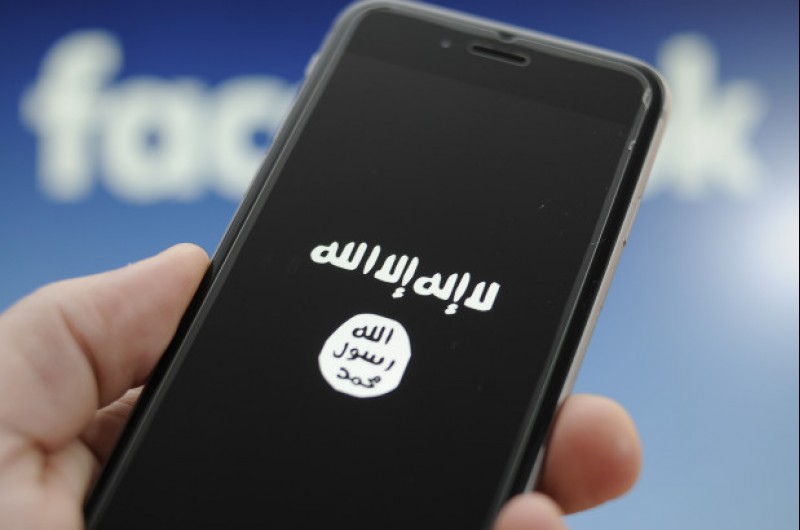- Home/
- News
Report: Facebook Really Is Connecting People, Specifically ISIS
Facebook is connecting more than just distant relatives who post too much about their children, at least per a recent study that concludes it is connecting new affiliates to the Islamic State’s digital networks. According to the Telegraph, researchers with the Counter Extremism Project analyzed the social media habits of roughly 1,000 ISIS supporters in 96 countries, finding that “users with radical Islamist sympathies were routinely introduced to one another through the popular ‘suggested friends’ feature.”
The findings of the report won’t be published in full until later this month, the paper added, though researchers Gregory Waters and Robert Postings both said that interacting with or merely researching extremists on the website resulted in Facebook recommending ever-growing numbers of them as suggested friends.
“Facebook, in their desire to connect as many people as possible have inadvertently created a system which helps connect extremists and terrorists,” Postings told the Telegraph.
The researchers also uncovered some evidence pointing towards Facebook being an effective networking tool for ISIS supporters, the paper wrote:
In one example uncovered by the researchers, an Indonesian Isil supporter sent a friend request to a non-Muslim user in New York in March 2017.
During the initial exchange the American user explained that he was not religious, but had an interest in Islam.
Over the following weeks and months the Indonesian user began sending increasingly radical messages and links including pro-Isil propaganda, all of which were liked by his target.
Researchers told the Telegraph that Facebook appeared to be taking a low-effort approach to finding and eliminating the offending accounts, with less than half of the 1,000 pro-ISIS accounts suspended in the following six months.
The Counter Extremism Project has something of a mixed record. It played a role in having extreme content like calls to violence from cleric Anwar al-Awlaki from YouTube, though the NYU Brennan Center for Justice’s Faiza Pateltold the New York Times, “The motivations that lead any individual to commit an act of violence are very complex. To pin it on one guy’s videos seems very simplistic.” It’s been reported to have hawkish political allies, and in 2015, Twitter declined to participate in one of its events, citing the group’s undisclosed funding. Later, Lobelog reported the Counter Extremism Project seems to have very close relationships with the United Arab Emirates.
ISIS’ social media savvy has been remarked on for years; while all terrorism is on some level intended to attract the eyes of the media and the public, the group has reportedly been known to choreograph attacks for the specific purpose of producing digital content designed to appeal to online fringe elements. (As Wired reported in 2016, their multimedia is not limited to battle porn, but also includes videos featuring glowing propaganda about life in ISIS’ self-declared caliphate, the efficacy of its government, and testimonials from immigrants.) While supporters of groups like al-Qaeda tried to hide in private forums, ISIS supporters often stick to the most public parts of the web—something that can backfire, because their posting habits often come at the cost of revealing sensitive information.
One might shoot back that terrorists using Facebook to connect isn’t all that different from using email to connect, except that the key difference is that Facebook automatically tries to create connections between people for the purpose of subsequently mining them for advertiser-ready data.
These tools can end up being pretty powerful. In its eternal quest to keep people active and interacting on the site, the Washington Post surmised earlier this year that Facebook is deliberately creating “filter bubbles that block out opinions that don’t match your own.”
Facebook itself told the Telegraph that it works to quickly remove extremist content, though numerous reports have noted the site’s propensity for fueling civil violence in countries like Sri Lanka and Myanmar where it has a massive userbase but limited staff.
In a leaked internal post described as a contentious manifesto of sorts, executive Andrew Bosworth wrote that Facebook’s mission to connect people means that “Maybe someone dies in a terrorist attack coordinated on our tools... The ugly truth is that we believe in connecting people so deeply that anything that allows us to connect more people more often is *de facto* good.”
“This project has laid bare Facebook’s inability or unwillingness to efficiently address extremist content on their site,” Waters told the Telegraph. “The failure to effectively police its platform has allowed Facebook to become a place where extensive IS supporting networks exist, propaganda is disseminated people are radicalised and new supporters are recruited.”
Source: LINK



 Development of specialized PCVE web site is funded by EU FUNDS CN 2017-386/831 - "IPA II 2016 Regional Action on P/CVE in the Western Balkans"
Development of specialized PCVE web site is funded by EU FUNDS CN 2017-386/831 - "IPA II 2016 Regional Action on P/CVE in the Western Balkans"